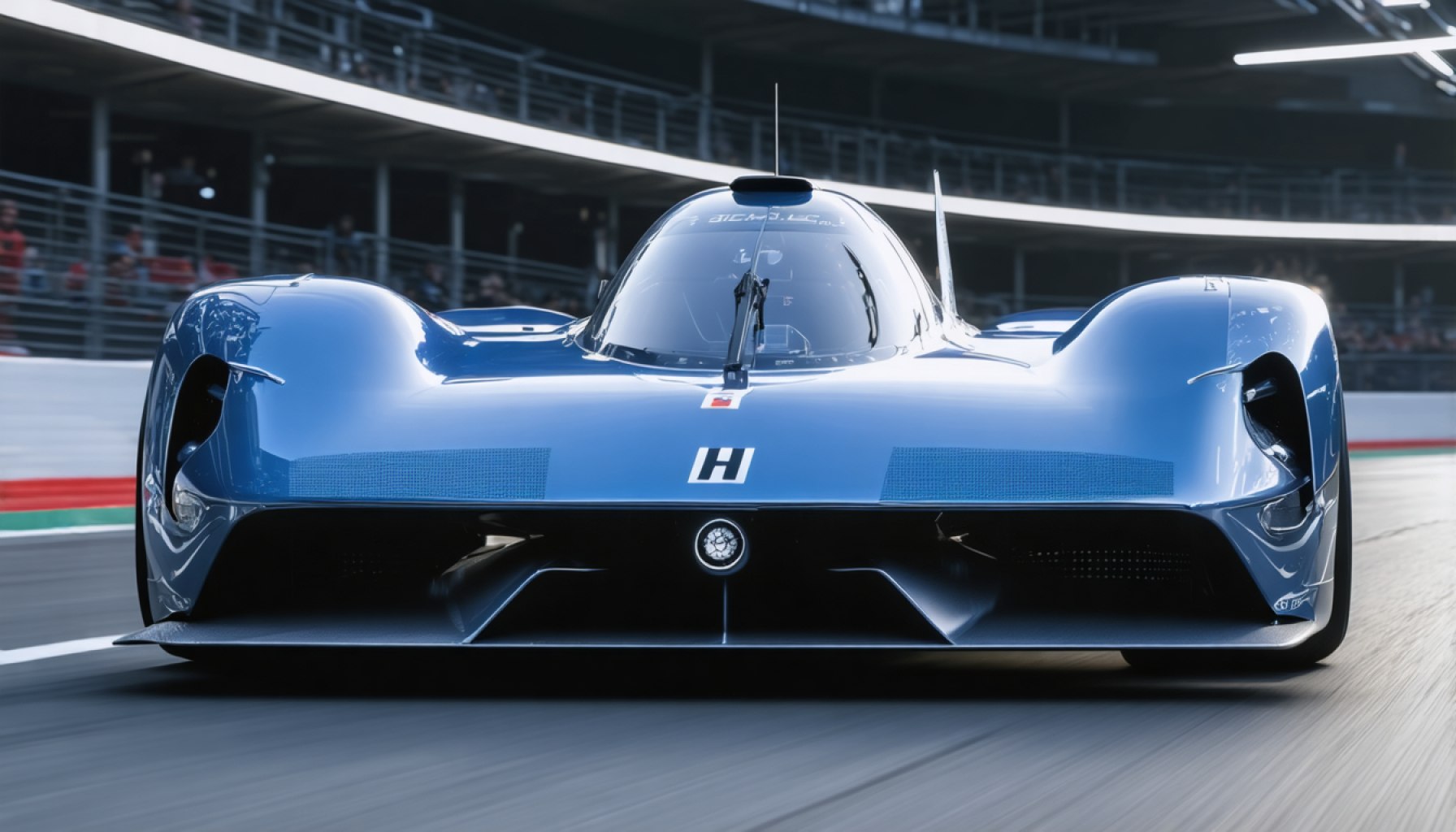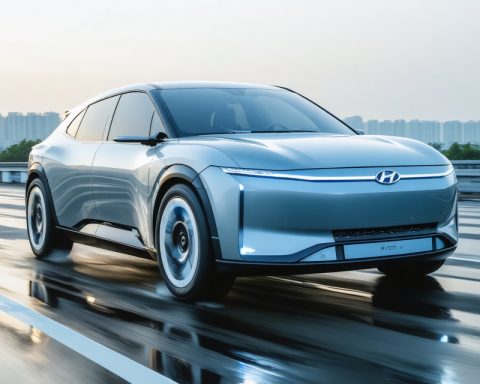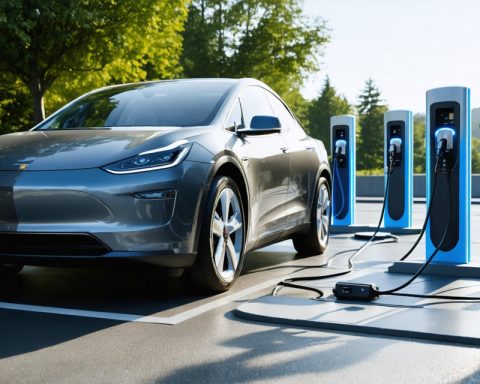- Extreme H is an innovative motorsport series focusing on sustainability and promoting hydrogen energy adoption.
- The series features off-road races using hydrogen-powered Pioneer 25 vehicles, integrating fuel cells with batteries for efficient electric drive trains.
- Ali Russell highlights hydrogen’s potential for energy storage and decarbonization, complementing advancements in battery technology.
- The initiative seeks to make events “climate positive” by utilizing hydrogen-powered generators to contribute renewable energy to the grid.
- A 500kW fuel cell system is being developed to power their microgrid, marking a significant technological achievement.
- Success relies on industry collaboration, investment, and support to promote hydrogen as a key energy strategy.
- Extreme H merges thrilling sport with environmental responsibility, aiming to redefine motorsport and advocate for a hydrogen-powered future.
An invigorating gust of the future rushes from the rugged landscapes where the new motorsport series, Extreme H, prepares to debut. Deriving its spirit from the adventurous heart of the acclaimed Extreme E series, Extreme H is not just about speed and thrills; it’s about revolutionizing how we think about energy. With a resolute commitment to sustainability, this off-road racing series positions itself at the vanguard of hydrogen awareness and adoption.
Imagine cars slicing through untamed terrains, propelled not by fossil fuels, but by hydrogen—the so-called “magic molecule.” The dynamic landscape is dotted with futuristic Pioneer 25 vehicles, each one a testament to what’s possible when innovation meets environmental responsibility. These aren’t just races; they’re kinetic showcases of the future’s potential, demonstrating how hydrogen, integrated through a fuel cell within a battery, powers electric drive trains with astonishing efficiency.
Ali Russell, the managing visionary steering this initiative, speaks not just with enthusiasm, but with purpose. For those vested in decarbonization, the challenge of storing renewable energy effectively is pressing. Russell argues that while advancements in battery technology are crucial, the potential of green hydrogen cannot be overlooked. It provides a powerful solution, enabling energy storage that strategically could unlock new paths toward a sustainable future.
Yet, the ambition extends beyond the racing circuits. This groundbreaking venture aspires to run entire events with hydrogen-powered generators. The push is toward transforming these events from being merely Net Zero—where emissions are balanced with offset activities—to being “climate positive,” actively contributing renewable energy back to the grid.
Andy Welch, Global Hydrogen Development Manager, reveals the behind-the-scenes evolution of their technology. Through painstaking iterations, they have arrived at a formidable 500kW fuel cell system, ready to power their microgrid by year-end. This milestone symbolizes more than just technological prowess—it epitomizes a visionary leap towards a reality where hydrogen isn’t a mere alternative but a foundational pillar of energy strategy.
The series’ success hinges on collaboration. As Russell emphasizes, it’s a call to the hydrogen industry to rally together, fostering an environment ripe for investment and rapid technological advancement. For Extreme H, attracting early adopters and garnering industry support is not solely for the victory laps; it’s a declaration that what’s beneficial for this championship is ultimately a boon for humanity’s carbon-conscious journey.
The resonating takeaway from Extreme H is clear: our future isn’t something to be passively awaited; it’s an endeavor to be actively pursued. By marrying thrilling sport with pioneering energy solutions, Extreme H doesn’t just seek to redefine motorsport—it aims to reshape how we engage with our environmental responsibilities. In this junction of adrenaline and purpose, Extreme H invites us all to buckle in for a ride toward a hydrogen-fueled tomorrow.
The Future of Racing: Extreme H’s Hydrogen-Powered Revolution
Introduction
The motorsport world is on the cusp of a transformative shift with the emergence of Extreme H, a revolutionary racing series emphasizing hydrogen fuel technology. Building on the adventurous legacy of Extreme E, Extreme H combines high-speed thrills with groundbreaking sustainability efforts, championing the “magic molecule”—hydrogen—as a formidable force in our quest for a greener future.
How Extreme H is Pioneering Hydrogen Technology
Extreme H is more than just a racing series; it’s a dynamic initiative showcasing the potential of hydrogen as a viable alternative to fossil fuels. Here are some additional insights into the series and its broader implications:
Features and Technology
– Pioneer 25 Vehicles: These futuristic cars utilize hydrogen fuel cells integrated with batteries to power electric drive trains, demonstrating new efficiencies in motorsport technology.
– Fuel Cell System: Developed with a target power output of 500kW, this system exemplifies the potential of hydrogen as a clean energy source capable of meeting demanding needs.
– Microgrid Innovations: By the end of the year, a hydrogen-powered microgrid is anticipated, aiming to set a new standard for sustainable energy use in large-scale events.
Real-World Use Cases and Future Applications
Extreme H isn’t limited to the racetrack; its implications ripple outwards into broader energy strategies. Hydrogen’s role in energy storage could greatly enhance the viability of renewables by providing a stable, long-term storage option that overcomes the intermittent nature of solar and wind power.
Challenges and Industry Support
While the series is ambitious, its success requires industry-wide collaboration to overcome challenges such as:
– Cost of Hydrogen Production: Green hydrogen is more sustainable but currently more expensive than traditional alternatives. Ongoing technological advancements and increased demand can drive costs down.
– Infrastructure Development: The series urges investors and technologists to partner in building the necessary infrastructure for mass adoption of hydrogen technology.
Market Trends and Predictions
The global hydrogen market is poised for significant growth, driven by policies pushing for decarbonization and technological innovations. Analysts predict the market could reach multibillion-dollar valuations within the next decade.
Pros and Cons Overview
Pros
– Environmental Benefits: Zero emissions during operation make hydrogen vehicles an attractive option for a sustainable future.
– Technological Innovation: Paving the way for larger hydrogen adoption and encouraging related innovations.
Cons
– High Initial Costs: Current infrastructure and production costs are barriers to wider adoption.
– Technical Challenges: Storage and transportation of hydrogen require further advances to become commercially viable on a large scale.
Recommendations
– For Industry Stakeholders: Engage in collaborative initiatives and invest in R&D for hydrogen technology advancements.
– For Enthusiasts and Consumers: Stay informed about hydrogen developments and consider supporting sustainable automotive and energy solutions.
Conclusion
Extreme H represents not just the future of motorsport but a visionary leap towards a sustainable tomorrow. By integrating thrilling competition with responsible energy practices, it beckons us to embrace a hydrogen-fueled future. As the series unfolds, it leaves an open road for innovation that promises to inspire a cleaner, more sustainable world.
For more information about this pioneering series, visit the official Extreme E website.














